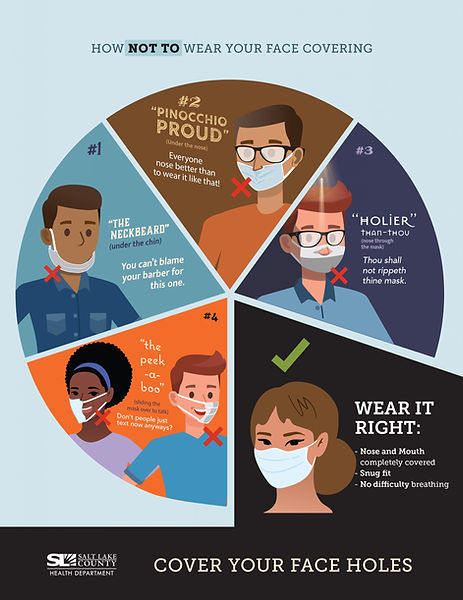COVID-19 RESPONSE
The National Tongan American Society, along with community partners, have joined in the fight to lessen the impact of the coronavirus on the Pacific Island community, one of the hardest hit demographic in COVID-19 deaths in Utah and nationwide. In addition, COVID-19 has exposed other disparities in our Pacific Island community such as unemployment, housing, poverty and access to healthcare. We are committed to increasing the well-being of our communities physically, mentally, socially, economically and culturally.
Utah Pacific Islander COVID-19 Numbers
-
9510 Pacific Islanders have contracted COVID-19 (Highest infection rate of all races/ethnicities, 18059.3 cases per 100,000 population)
-
38 cases in the last 72 hours; 38 cases this week (since 5/15).
-
The Pacific Islander case rate is 1.4 times higher than the overall statewide rate (18059.3 cases per 100,000 population statewide)
-
832 Pacific Islanders have been hospitalized for COVID-19 (2nd highest hospitalization rate of all races/ethnicities, 85.7 hospitalizations per 1,000 cases)
-
1 hospitalizations in the past 72 hours; 1 hospitalizations this week (since 5/15).
-
The Pacific Islander hospitalization rate is 2.2 times higher than the overall statewide rate (85.7 hospitalizations per 1,000 cases statewide)
-
65 Pacific Islanders have died of COVID-19 in Utah (2nd highest mortality rate of all races/ethnicities, 100.8 deaths per 100,000 population).
-
1 deaths in the past 24 hours; 1 deaths this week (since 5/15).
-
The Pacific Islander death rate is 2.1 times higher than the overall statewide rate (47.0 deaths per 100,000 population statewide).
(Data provided by the Utah Pacific Islander Health Coalition)
.
Pacific Islander Vaccine Drive
Earlier this year, the NTAS partnered with several organizations to accelerate the distribution of the COVID-19 vaccine to the Pacific Island community and coordinate strategic points in the community such as churches and schools to provide easy access to the vaccine. We also partnered with the Utah Food Bank to provide boxes of food to families at clinic locations to help alleviate food scarcity in the community because many of the Pacific Islander families impacted by COVID-19 were essential front line workers.
According to the Coronavirus Dashboard Utah, we still have much work to do to vaccinate our NHPI community. As of today, 30.5% of the NHPI population has received their first shot of the vaccine and 26% has received their second shot, representing only 1.4% of the eligible population in Utah. The NTAS will continue to work with local organizations to provide ongoing COVID-19 education and facilitate access to vaccination drives to improve these numbers.

COVID-19 Safety Guidelines
Earlier this year, the NTAS partnered with several organizations to accelerate the distribution of the COVID-19 vaccine to the Pacific Island community and coordinate strategic points in the community such as churches and schools to provide easy access to the vaccine. We also partnered with the Utah Food Bank to provide boxes of food to families at clinic locations to help alleviate food scarcity in the community because many of the Pacific Islander families impacted by COVID-19 were essential front line workers.
Clean and Disinfect Frequently
Clean AND disinfect frequently touched surfaces daily. This includes tables, doorknobs, light switches, countertops, handles, desks, phones, keyboards, toilets, faucets, and sinks. If surfaces are dirty, clean them. Use detergent or soap and water prior to disinfection. Then, use a household disinfectant. (source: www.cdc.gov)
Monitor Your Health Daily
Be alert for symptoms. Watch for fever, cough, shortness of breath, or other symptoms of COVID-19. Take your temperature if symptoms develop. If you are experiencing symptoms, call your doctor. (source: www.cdc.gov)
Cover Cough & Sneezes
Always cover your mouth and nose with a tissue when you cough or sneeze or use the inside of your elbow and do not spit. Throw used tissues in the trash. Immediately wash your hands with soap and water for at least 20 seconds. If soap and water are not readily available, clean your hands with a hand sanitizer that contains at least 60% alcohol. (source: www.cdc.gov)
Stop the Spread of Misinformation
Inaccurate information spreads widely and at speed, making it more difficult for the public to identify verified facts and advice from trusted sources, such as their local health authority. However, everyone can help to stop the spread. If you see content online that you believe to be false or misleading, you can report it to the hosting social media platform. (source: World Health Organization)
Mask Advisory
The Delta variant of the coronavirus is spreading throughout Utah and even though state and federal guidance hasn’t yet changed, doctors advise that vulnerable residents should consider continuing to wear masks and limiting contact with other people.
General Mask Considerations:
-
Make sure you know how to use face coverings correctly. Face coverings should be worn over the nose and mouth, and fit securely around the face.
-
Wash your hands before you put on a face covering.
-
Try not to touch your face when wearing a face covering. If you do touch your face, you should wash your hands or use hand sanitizer right away.
-
Wash or sanitize your hands before and after you help others put on or adjust a face covering.
-
Do not wear face coverings if they are wet. A wet face covering may make it hard to breathe.
-
Never share face coverings.
-
Wash face coverings every day, or if they look dirty.
-
Have extra face coverings in case a back-up is needed during the day.












